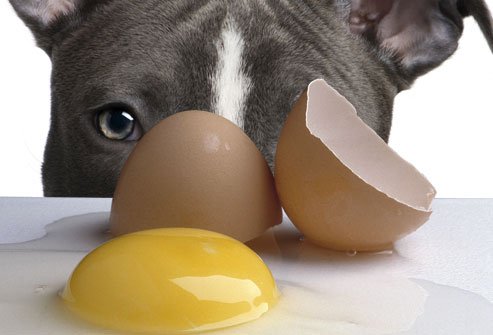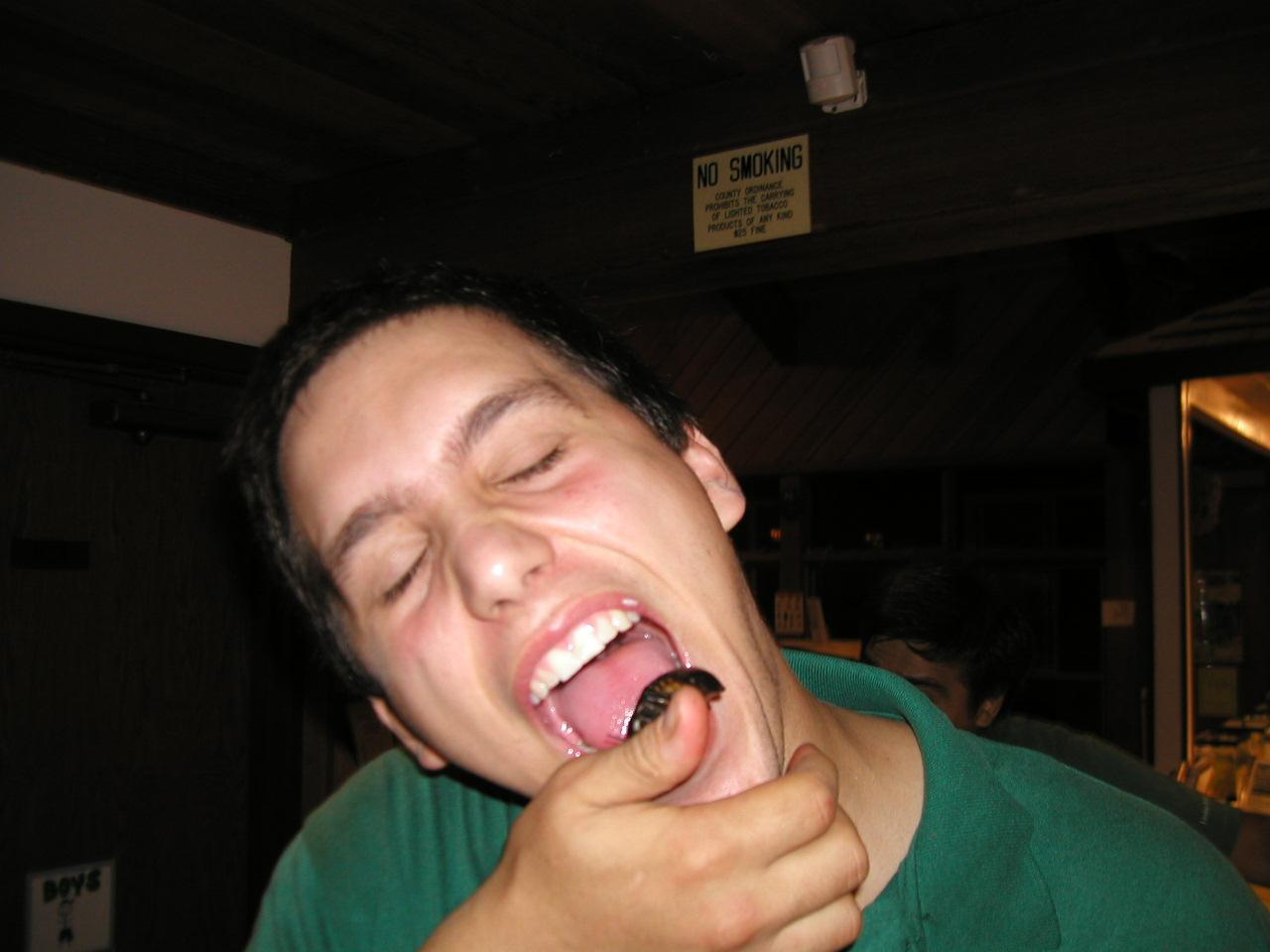William Beach loved cantaloupe — so much so that starting in June last year he ate it almost every day. By August, the 87-year-old retired tractor mechanic from Mustang, Oklahoma, was complaining to his family that he was fatigued, with pain everywhere in his body.
On Sept. 1, 2011, Beach got out of bed in the middle of the night, put his clothes on and walked into the living room. His wife, Monette, found him collapsed on the floor in the  morning. At the hospital, blood poured from his mouth and nose, splattering sheets, bed rails and physicians.
morning. At the hospital, blood poured from his mouth and nose, splattering sheets, bed rails and physicians.
He died that night, a victim of Listeria monocytogenes. Beach was one of 33 people killed by listeria that was later traced by the U.S. Food and Drug Administration and state officials to contaminated cantaloupes from one Colorado farm. It was the deadliest outbreak of foodborne disease in the U.S. in almost 100 years.
“He died in terror and pain,” says his daughter Debbie Frederick.
That’s how Stephanie Armour, John Lippert and Michael Smith begin their food safety and aduits and inspections opus for Bloomberg. The Today Show may run a version this morning, because I taped a bit for it at Brisbane’s Channel 7 studios last week.
About seven weeks after Beach started eating cantaloupes, a private, for-profit inspection company awarded a top safety rating to Jensen Farms, the Granada, Colorado, grower of his toxic fruit. The approval meant retailers such as Wal-Mart Stores Inc. (WMT) and Wegmans Food Markets Inc. could sell Jensen melons.
The FDA, a federal agency nominally responsible for overseeing most food safety, had never inspected Jensen.
During the past two decades, the food industry has taken over much of the FDA’s role in ensuring that what Americans eat is safe. The agency can’t come close to vetting its  jurisdiction of $1.2 trillion in annual food sales.
jurisdiction of $1.2 trillion in annual food sales.
In 2011, the FDA inspected 6 percent of domestic food producers and just 0.4 percent of importers. The FDA has had no rules for how often food producers must be inspected.
The food industry hires for-profit inspection companies — known as third-party auditors — who aren’t required by law to meet any federal standards and have no government supervision. Some of these monitors choose to follow guidelines from trade groups that include ConAgra Foods Inc. (CAG), Kraft Foods Inc. and Wal-Mart.
The private inspectors that companies select often check only those areas their clients ask them to review. That means they can miss deadly pathogens lurking in places they never examined.
What for-hire auditors do is cloaked in secrecy; they don’t have to make their findings public. Bloomberg Markets obtained four audit reports and three audit certificates through court cases, congressional investigations and company websites.
Six audits gave sterling marks to the cantaloupe farm, an egg producer, a peanut processor and a ground-turkey plant — either before or right after they supplied toxic food.
Collectively, these growers and processors were responsible for tainted food that sickened 2,936 people and killed 43 in 50 states.
“The outbreaks we’re seeing are endless,” says Doug Powell, lead author of an Aug. 30, 2012, study on third-party monitors called “Audits and Inspections Are Never Enough.” Powell, a professor of food safety at Kansas State University, says Americans are at risk whenever they go to a supermarket.
“You need to be in a culture that takes food safety seriously,” Powell says. “Right now, what we have is hidden. The third-party auditor stickers and certificates are meaningless.”
In some cases, for-hire auditors have financial ties to executives at companies they’re reviewing. AIB International Inc., a Manhattan, Kansas, auditor that awarded top marks to producers that sold toxic food, has had board members who are top managers at companies that are clients.
Executives of Flowers Foods Inc. (FLO), which makes Tastykake, and Grupo Bimbo SAB in Mexico City, which makes Entenmann’s pastries, Sara Lee baked goods and Wonder Bread, serve or have served on AIB’s board.
“There’s a fundamental conflict,” says David Kessler, a lawyer and physician who was FDA commissioner from 1990 to 1997. “We all know about third-party audit conflicts. We’ve seen it play out in the financial world. You can’t be tied to your auditors. There has to be independence.”
As flawed as the inspection system is in the U.S., it’s more problematic with imported food, especially coming from countries with lower sanitary standards, says Michael Doyle, director of the University of Georgia’s Center for Food Safety. In some emerging markets, farms growing food for export to the U.S. aren’t inspected at all.
The U.S. will import half of its food by 2030, up from 20 percent today, Doyle says. Bloomberg Markets visited growers in China, Mexico and Vietnam and found unsanitary  conditions for produce, fruit and fish exported to the U.S.
conditions for produce, fruit and fish exported to the U.S.
Auditors evaluate their clients using standards selected by the companies that pay them, says Mansour Samadpour, owner of IEH Laboratories & Consulting Group in Lake Forest Park, Washington, which does testing for the FDA. The auditors sometimes follow a checklist that the company they’re inspecting has helped write.
“If you have a program for adding rat poison to a food, the auditor will ask, ‘Did you add as much as you intended?”’ Samadpour says. “Most won’t ask, ‘Why the hell are we adding poison?”’
Not only has the government outsourced auditing to the food industry; the auditors themselves often outsource their vetting to independent contractors — people over whom they don’t have direct management control.
While Primus Labs declined to comment directly for this story, it did supply a response from its law firm, Kaufman Borgeest & Ryan LLP in New York. Auditors, the statement says, serve at the pleasure of their clients and cannot go beyond what they are asked to do.
“Third-party auditing will continue to be as effective as those requiring the audits (buyers/suppliers) and the audited suppliers make them,” the law firm writes. James Markus, a lawyer representing Jensen, didn’t return calls seeking comment.
From the outset, the FDA lacked the resources to inspect all of the country’s food producers.
The food industry moved to fill that vacuum with private auditors in the 1990s. Danone SA (BN), Kraft, Wal-Mart and other companies created the Paris-based Global Food Safety Initiative in 2000 to write guidelines for third-party auditors.
The program, whose vice chairman is Frank Yiannas, Wal- Mart’s vice president for safety, requires companies to be audited once a year. It doesn’t mandate testing for pathogens. In 60 manufacturing plants, Wal-Mart suppliers reported a third fewer recalls in the two years after adopting GFSI standards, Yiannas says.
In some cases, companies use their own auditors to check suppliers. In 2002 and 2006, Nestle USA, a subsidiary of Vevey, Switzerland-based Nestle SA (NESN), refused to use Peanut Corp. of America as a supplier. Nestle inspectors found rodent carcasses and pigeons in Peanut Corp.’s Plainview, Texas, plant.
Nestle’s rejection didn’t stop Lynchburg, Virginia-based Peanut Corp. from doing business with other customers or seeking approval from third-party auditors. In 2008, AIB International auditor Eugene Hatfield gave Peanut Corp.’s Blakely, Georgia, plant a “superior” rating.
And there’s a whole lot more. Our take on all this is below:
Food Control
D.A. Powell, S. Erdozain, C. Dodd, R. Costa, K. Morley, B.J. Chapman
http://www.sciencedirect.com/science/article/pii/S0956713512004409?v=s5
Abstract
Internal and external food safety audits are conducted to assess the safety and quality of food including on-farm production, manufacturing practices, sanitation, and hygiene. Some auditors are direct stakeholders that are employed by food establishments to conduct internal audits, while other auditors may represent the interests of a second-party purchaser or a third-party auditing agency. Some buyers conduct their own audits or additional testing, while some buyers trust the results of third-party audits or inspections. Third-party auditors, however, use various food safety audit standards and most do not have a vested interest in the products being sold. Audits are conducted under a proprietary standard, while food safety inspections are generally conducted within a legal framework. There have been many foodborne illness outbreaks linked to food processors that have passed third-party audits and inspections, raising questions about the utility of both. Supporters argue third-party audits are a way to ensure food safety in an era of dwindling economic resources. Critics contend that while external audits and inspections can be a valuable tool to help ensure safe food, such activities represent only a snapshot in time. This paper identifies limitations of food safety inspections and audits and provides recommendations for strengthening the system, based on developing a strong food safety culture, including risk-based verification steps, throughout the food safety system.

.jpg) The outbreak, in September 2005, had become the second biggest to hit the UK by the time it ran its course.
The outbreak, in September 2005, had become the second biggest to hit the UK by the time it ran its course. their heads. How had inspectors for Costco, who looked over the northeast Iowa farm where the chain bought eggs, not noticed the rodent holes in the henhouses?
their heads. How had inspectors for Costco, who looked over the northeast Iowa farm where the chain bought eggs, not noticed the rodent holes in the henhouses?.jpg) salmonella-prevention programs, a job the USDA leaves to the Food and Drug Administration.
salmonella-prevention programs, a job the USDA leaves to the Food and Drug Administration. over to the restaurant or the retailer. Call the local health unit. Otherwise, the proof may be gone (at least take a picture with your cell phone, but they can be photoshoped too easily).
over to the restaurant or the retailer. Call the local health unit. Otherwise, the proof may be gone (at least take a picture with your cell phone, but they can be photoshoped too easily)..jpg)
 Umpires and inspectors alike are not there to control the game, just to ensure it is being played right.
Umpires and inspectors alike are not there to control the game, just to ensure it is being played right.